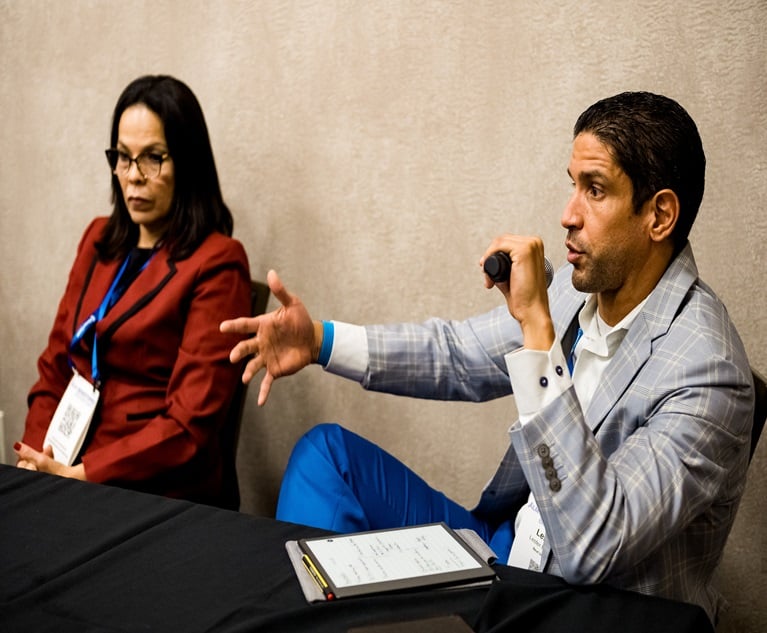An agency owner dreads the scenario that an employee leaves theagency and takes customers, prospects, employees and proprietaryinformation with him or her to a new job. When this happens, theagency loses more than its investment in the employee. It losesother valuable assets, such as staff, marketing ideas, prospectsand competitive advantages. Similar situations can occur when apartner is bought out and when books of business are bought andsold. This is why non-compete agreements are so important. Theseagreements are designed to protect businesses from this type ofloss.
|Before continuing further, I must first add a disclaimer: I amnot an attorney, so nothing in this article should be consideredlegal advice or an exhaustive discussion on these types ofagreements. This article is simply a layman's opinion based onyears of insurance agency experience.
|Although many attorneys advise that non-compete agreements willnot hold in court, keep in mind non-compete agreements come in manyshapes and forms. The validity of a non-compete depends on the typeof agreement and the scenario in which it is being used.
|Most non-competes try to keep ex-employees from stealing clientsand employees. Historically, many of these agreements alsoattempted to keep former employees from competing with the agencyin any way whatsoever. Problems occur because some businesses andattorneys are too greedy. They try to keep ex-employees fromworking anywhere in the industry unless they move to a location farfrom the original business. Some agreements stipulated the formeremployee could not even call on prospective clients that were noton the agency's prospect list. This hoggish strategy effectivelylimited the person's ability to make a living.
|Moreover, a need for such strenuous restrictions is not usuallyrequired. The truth is, most agencies do not call enough prospectsfor a former employee to hurt them simply by call on prospects ingeneral. So for many reasons, courts have generally disallowedthese onerous non-competes. Another drawback of such strictagreements is good employees may simply refuse to sign them.
|Well-written non-competes are not worthless, though.Non-competes do hold up in some courts when the agreement is fairto all parties, when they are bought and paid for, and when theduration and geographic scope is limited. For example, non-competesare usually bought and sold when an agency is sold or a partnersells his or her shares. It is good practice to specificallyallocate a specific amount of the purchase price to the non-competeso that it is upheld, but even that may not be necessary if thecontract stipulates a non-compete is part of the deal. Thedifference is that a non-compete is being bought and sold versuskeeping someone from making a living and not paying a dime for hisor her starvation.
|Some sellers seem to think that because their attorneys havesaid non-competes don't hold up that the sellers can legallycompete against the buyers. But this is different because theseller has sold the right to compete.
|The problem non-competes pose in producer contracts is a littlemore clear because producers are rarely given consideration for thenon-compete. To help reduce the risk of employees walking away withvaluable accounts, employees or information, consider the followingpoints:
|1 Determine if the employee would actually have the ability tohurt the agency if he or she were to leave. Will the employeeactually be able to take any clients, employees or valuableinformation with them? If not, why bother with a non-compete? Sure,it is good insurance, but sometimes it is counterproductive becausea lousy producer moving to the competition can be a smartstrategy.
|2 If a non-compete is required, a well-written agreement isabsolutely critical. Talk to an excellent labor law attorney whoknows your state's laws inside and out. State laws on this subjectvary significantly. Consult with the attorney to draft thecontract. Keep in mind that a well-written and fair contract canactually be a competitive advantage. If a new producer is choosingbetween two different agencies, a good producer may choose theagency with the fairest contract.
|3 Consider paying for the non-compete or having the producer payfor not having a non-compete. For example, offer 35 percent onrenewals if the producer has a non-compete and 25 percent if theydo not. Another example is to pay 35 percent new, 20 percentrenewal and 5 percent for a non-compete. Other alternatives includegiving producers the option to take any accounts they desire whenthey leave if they pay X times commissions for those accounts, orcreating a vesting/deferred compensation plan that only pays if thenon-compete is not violated.
|4 Consider alternatives. Other options are usually better thannon-competes for protecting the agency. For example, a non-piracyor non-disclosure of confidential information covenant may be moreappropriate. These agreements generally state that the formeremployee will not take or use the agency's proprietary businessinformation for commercial gain. When these agreements are writtenwell, courts generally uphold them. These agreements do not keepformer employees from competing and trying to make a legitimateliving, provided the former employee does not use information/tradesecrets gained under their employment. This is why the contractshave to be well written.
|The definition and application of trade secrets and confidentialinformation is essential. A trade secret is not public information,but a list of prospects could be public information. A list ofprospects the producer has never seen, though, probably cannot be asecret since he or she never knew of its existence. In other words,to be a trade secret, the employee must know it is a trade secretand the agency has a responsibility to define and maintain theinformation as such. If the contract is properly written, risk isreasonably mitigated.
|Do not forget non-competes and/or confidentiality agreementswith your carriers and vendors. More than one insurance company hasstolen an agency's ideas/program, and some are giving leadsgenerated by one agency to other agencies as I write this. Alsoconsider your IT vendors, who have access to all of your data.Virtually all of an agency's value is converted to the data in yoursystems. You have firewalls, but do you have a non-compete orconfidentiality agreement?
|Non-compete agreements are more complex than many agency ownersbelieve. A little background about their ins and outs createsadvantages and great protection.
Want to continue reading?
Become a Free PropertyCasualty360 Digital Reader
Your access to unlimited PropertyCasualty360 content isn’t changing.
Once you are an ALM digital member, you’ll receive:
- All PropertyCasualty360.com news coverage, best practices, and in-depth analysis.
- Educational webcasts, resources from industry leaders, and informative newsletters.
- Other award-winning websites including BenefitsPRO.com and ThinkAdvisor.com.
Already have an account? Sign In
© 2024 ALM Global, LLC, All Rights Reserved. Request academic re-use from www.copyright.com. All other uses, submit a request to [email protected]. For more information visit Asset & Logo Licensing.








